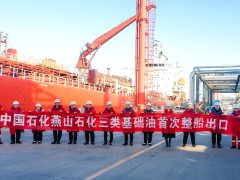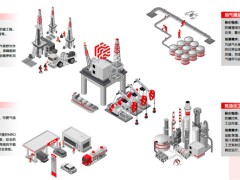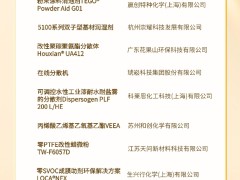据油气新闻网7月9日报道,法国和沙特阿拉伯已经同意在氢的开发和低排放和可再生资源发电方面进行合作。
据沙特新闻社报道称,此前沙特能源大臣萨勒曼与法国能源转型部长艾格尼丝·潘尼尔-拉纳彻举行了会谈。
据会后发表的联合公报称,沙特阿拉伯政府和法国政府承认,能源是两国长期伙伴关系的主要支柱之一,两国已于2023年2月2日签署了一份关于在能源领域开展合作的谅解备忘录,确认了他们的承诺。
法国和沙特阿拉伯已将利用低排放和可再生资源生产的氢气和电力作为各自能源转型的核心。两国决定联手寻找创新的解决方案,以最有效和最有竞争力的方式生产氢气,并开发其在工业、交通、发电、建筑和其他相关应用中的用途。
双方将努力加强在发展和维持能源部门供应链方面的合作,并使企业之间的合作能够最大限度地利用两国当地资源,这有助于实现能源供应的灵活性和有效性。
联合公报称,双方支持成立“法国-沙特特别工作组”,旨在从氢和其他领域的合作中取得预期成果。
双方商定了以三大支柱为重点的合作规划图:
·技术开发:合作将推动可再生技术生产的氢气和电力在需求中心的生产、运输和转换部署;
·商业合作:私营部门发挥着关键作用,沙特-法国合作欢迎沙特和法国公司共同努力,在整个能源供应链中建立合作伙伴关系,以解锁商业和氢贸易;
·政策和法规:该规划图将通过相互认可的认证框架,包括国际贸易一致性所需的所有可能来源的排放生命周期评估,进一步促进氢工业的发展。
两国都认识到根据《联合国气候变化框架公约》和《巴黎协定》确定的原则和目标推进实施的重要性,包括努力将气温上升限制在1.5摄氏度以内。
此外,两国认识到,清洁氢是实现促进经济可持续发展和减轻气候变化影响这一共同目标的必要燃料。
双方同意加强在电力领域的合作,在可再生能源发电、电网互联项目等领域交流经验,鼓励私营部门参与发电、输配电、储能和电网自动化技术等电力领域项目。
双方还同意共同努力提高能源效率,加强在和平与安全框架下的核能、放射性废物管理和核应用以及人力资源开发领域的合作。
两国同意在推进气候技术和解决方案方面开展合作,包括水泥、航空、海洋和石化等难以减排行业的碳捕获、利用和储存。
沙特阿拉伯的目标是成为全球低排放资源生产氢和电力的主要出口国,利用其以具有竞争力的成本生产低排放资源生产氢和电力的能力。
沙特拥有可再生能源、天然气和碳汇的必要资源,除了其靠近全球主要需求中心的战略位置之外,还可以出口氢气。
法国发展脱碳氢的战略旨在对工业和运输的脱碳作出重大贡献。
该战略包括一项名为“法国2030”的公共投资计划,旨在加速法国优秀行业的投资和创新解决方案,以使工业脱碳,并发展可再生能源,目标是到2050年将可再生能源装机发电量提高到100吉瓦,其中40吉瓦以上来自海上风力发电场。
郝芬 译自 油气新闻网
原文如下:
KSA, France to work together on hydrogen electricty
France and Saudi Arabia have agreed cooperation in the development of hydrogen and production of electricity from low emission and renewable resources.
This follows a meeting between Prince Abdulaziz bin Salman, Saudi Energy Minister, and Agnes Pannier-Runacher, Minister for Energy Transition of France, a Saudi Press Agency report said.
The government of Saudi Arabia and the Government of the France acknowledge that energy is one of the main pillars of their mutual long-term partnership, and the two countries had affirmed their commitments by signing a memorandum of understanding to cooperate in the field of energy on February 2, 2023, said the joint communique issued following the meeting.
France and Saudi Arabia have placed hydrogen and electricity produced from low emission and renewable resources at the core of their respective energy transition. Both countries have decided to join forces in the search for innovative solutions to produce hydrogen in the most effective and competitive way, and to develop its use in industry, mobility, power generation, buildings and other relevant applications.
Both countries will work to enhance their cooperation in developing and sustaining supply chains for the energy sectors and to enable cooperation between companies to maximize the utilization of local resources in both countries, which contributes to achieving flexibility and effectiveness of energy supplies.
The parties support the creation of a “French-Saudi Task-Force” aiming to deliver desired outcomes from cooperation in hydrogen and other domains, it said.
They agreed on a roadmap of cooperation focusing on three pillars:
? Technology development: Cooperation will advance hydrogen and electricity produced from renewable technology deployment from production, transportation and conversion at demand centres;
? Business co-operation: the private sector has a critical role to play, Saudi - France cooperation welcomes joint efforts between Saudi and French companies to partner in the entire energy supply chain to unlock business and hydrogen trade;
? Policies and regulation: the roadmap will further promote the development of the hydrogen industry through a mutual recognition of certification framework including emission life cycle assessment from all possible sources necessary for consistency in international trade.
Both countries acknowledge the importance of advancing the implementation of the United Nations framework on Climate Change (UNFCCC) and the Paris Agreement in accordance with the principles, objectives and goals defined therein, including pursuing efforts to limit the temperature increase to 1.5°C, it said.
Moreover, the two countries recognise that clean hydrogen is an essential fuel to reach the shared objective of promoting a sustainable economic development while mitigating the impact of climate change.
Both countries agreed to enhance cooperation in the field of electricity, and exchange experiences in the field of electricity generation from renewable energy resources, grid interconnection projects, as well as encouraging the participation of private sectors in power sector projects including generation, transmission, distribution, storage and network automation technologies.
They also agreed to engage in joint efforts to enhance energy efficiency, and to enhance their cooperation in the field of nuclear energy in a peaceful and safe framework, the management of radioactive waste and the nuclear applications, and the development of human capabilities.
Both countries agreed to cooperate on advancing climate technologies and solutions including carbon capture utilization and storage for hard-to-abate sectors such as cement, aviation, marine, and petrochemicals, among others.
Saudi Arabia aims to become the leading exporter of hydrogen and electricity produced from low emission resources globally, capitalising on its ability to produce hydrogen and electricity produced from low emission resources at competitive cost, it said.
The kingdom has the necessary resources of renewable energy, natural gas and carbon sinks, to export hydrogen in addition to its strategic location with proximity to major global demand centres.
The French strategy for the development of decarbonised hydrogen aims at having a significant contribution to the decarbonisation of industry and transport. The strategy includes a public investment program, France 2030, aimed at accelerating investment and innovative solutions in sectors of French excellence to decarbonize industry and to develop renewable energy with the goal to increase the renewable power installed capacity up to 100GW by 2050, with more than 40 GW coming from offshore wind farms.
免责声明:本网转载自其它媒体的文章及图片,目的在于弘扬石化精神,传递更多石化信息,宣传国家石化产业政策,展示国家石化产业形象,参与国际石化产业舆论竞争,提高国际石化产业话语权,并不代表本网赞同其观点和对其真实性负责,在此我们谨向原作者和原媒体致以崇高敬意。如果您认为本站文章及图片侵犯了您的版权,请与我们联系,我们将第一时间删除。







